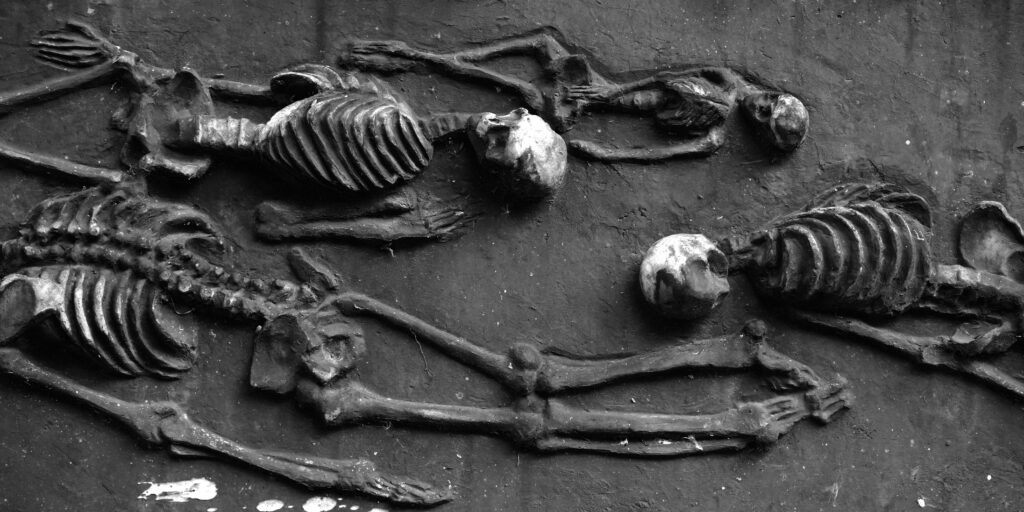
Representative Image
Mass graves and silence: Sanitation worker alleges murders, sexual abuse inside ‘Dharmasthala institution’
The former sanitation worker is now willing to assist the police to exhume the bodies
Bengaluru
In a haunting and deeply disturbing complaint filed in Dharmasthala police station on July 3, a former employee at Shree Kshetra Dharmasthala Administration, one of Karnataka’s most revered religious and service institutions, has detailed allegations of mass burials, sexual violence, and systemic cover-ups spanning over a decade.
The survivor, who joined the institution as sanitation worker in 1995 and continued working in various service departments till 2014, has laid bare a pattern of routine disposal of dead bodies, often of women, children, and vulnerable men. According to him, many of these bodies were not just unclaimed or unknown—but victims of brutal crimes, hidden behind the institution’s sacred image.
However, Dharmasthala police have registered FIR (0039/2025) against unknown persons despite complainant naming the institution. The police have also failed to upload the FIR copy in the website (https://ksp.karnataka.gov.in/firsearch/en).
A sacred institution, a dark underbelly
Initially entering Dharmasthala with devotion and a willingness to serve, the survivor claims he and his family were later drawn into the darker operations of the institution. He recounts being ordered to bury or burn dead bodies in remote forested areas, far from public view, by people he describes as senior functionaries or associates of Dharmasthala’s internal administration.
These weren’t peaceful deaths, he insists. Many of the bodies were of young women, often naked or partially clothed, some bearing clear signs of sexual assault. Others, including young girls and migrant men, had visible injury marks, burns, or indications of strangulation and mutilation.
In one particularly horrific incident around 2010, he was taken roughly 500 meters into a sugarcane field near the Dharmasthala campus. There, he found the body of a girl aged between 12 and 15, completely unclothed and apparently raped and strangled. The survivor says he was forced to dig a grave, bury her body, and burn her belongings to destroy any trace.
“I was told not to speak about what I had seen. They said, ‘If you reveal anything, we’ll cut you into pieces and bury you too. Your entire family will disappear.’”
Pattern of silence and fear
According to the complaint, this wasn’t an isolated act. Over the years, he says he participated in the secret burial or burning of many bodies, under coercion. Most of the bodies, he says, were either those of young women, migrant labourers, or the destitute—people with no strong social ties or families likely to seek justice.
He alleges that some corpses were cremated without rituals, some were burnt using petrol, while others were buried in designated locations deep in the woods. In some cases, identification tags or documents were deliberately destroyed.
He also describes how in one instance, he was ordered to burn the face of a deceased woman to prevent recognition and to destroy her clothes to remove forensic evidence. The threats he faced grew more violent over time. He recounts being told that his wife and children would be abducted and killed if he failed to comply or tried to speak out.
“They claimed to serve dharma, but what I saw were unspeakable crimes.”
A life lived in hiding
In December 2014, unable to bear the trauma and fearing for his life, the survivor says he fled from Dharmasthala with his family. Since then, he has lived in constant fear, changing addresses, avoiding government systems, and carrying the weight of what he calls an unbearable truth.
For years, he says, he remained silent due to fear—but now, as the trauma continues to affect his mental and physical health, he has chosen to speak up.
In the complaint, he has asked for:
- An independent investigation into Dharmasthala’s burial practices
- Forensic examination of identified locations
- Protection for his family
- The arrest of those involved.
He also mentions that several of the people who ordered or facilitated the disposal of bodies still hold influential positions in Dharmasthala’s organizational structure. While he refrains from publicly naming all individuals in the letter, he promises to fully cooperate with any official investigation, including taking authorities to burial sites and naming the perpetrators.
Call for action
The survivor concludes his complaint by appealing to law enforcement and human rights commissions to treat the complaint with the seriousness it deserves.
“These are not ordinary crimes. What has happened in Dharmasthala is mass murder, systematic erasure of evidence, and violation of humanity. I may be one of the only voices left who can speak, and I want the truth to come out before it’s too late.”
If these claims are verified, Karnataka may be looking at one of its biggest institutional abuse scandals—one that would shake the foundations of public faith in an institution long considered untouchable.
For More Karnataka Development here
